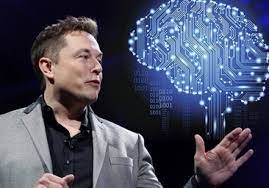- RESEARCHDistance Learning at AIU is enhanced by vast academic resources and innovative technologies build into the Virtual Campus: Hundreds of self-paced courses with video lectures and step by step lessons, thousands of optional assignments, 140,000 e-books, the Social Media & Networking platform allowing collaboration/chat/communications between students, and MYAIU develop students holistically in 11 areas beyond just academics.
- PROGRAMS OFFERED
- Areas of Study
- Courses and Curriculum
- Open Courses
- Register for a Program
- Associate Program
- Associate in Addiction Counseling
- Associate in Agriculture Food And Resources
- Associate in Anti Terrorism Security
- Associate in Behavior Analysis In Special Education
- Associate in Bioethics
- Associate in Climatology
- Associate in Cultural Theological Communication
- Associate in Culinary Arts
- Associate in Ecotechnology
- View all Associates Programs
- Bachelor Program
- Bachelors in Community Development
- Bachelors in Environmental Science
- Bachelor in Education (B.Ed, BS)
- Bachelors in Economics
- Bachelors in Entrepreneurship
- Bachelors in Financial Administration
- Bachelors in Human Resource Management
- Bachelors in Linguistics
- Bachelors in Nutritional Science
- Bachelors in Occupational Health and Safety
- Bachelors in Psychology
- View all Bachelor Programs
- Doctorate Program
- Doctor | of Biology (PhD)
- Doctorate in Business Administration (DBA, PhD)
- Doctor of Economics (PhD)
- Doctor of Electrical Engineering (D.Sc, PhD)
- Doctor of Finance (PhD)
- Doctorate in International Relations
- Doctorate in Information Technology (D.Sc)
- Doctor of Legal Studies (PhD)
- Doctor of Project Management (PhD)
- Doctor of Sociology (PhD, D.Sc)
- Doctorate in Sustainable Natural Resources Management
- View all Doctorate Programs
- Master Program
- Postdoctoral Program
- Postdoctoral in Animal Science
- Postdoctoral in Anti Terrorism Security
- Postdoctoral in Behavior Analysis In Special Education
- Postdoctoral in Bioethics
- Postdoctoral in Blockchain Technology and Digital Currency
- Postdoctoral in Business Management
- Postdoctoral in Cloud Computing
- Postdoctoral in Computer Engineering
- View all Postdoctoral Programs
AIU offers a wide range of majors in areas including the Arts, Business, Science, Technology, Social, and Human studies. More than 120 degrees and programs are available for adult learners at the associate’s, bachelor’s, master’s, doctoral and postdoctoral level. - VIRTUAL CAMPUS
Distance Learning at AIU is enhanced by vast academic resources and innovative technologies build into the Virtual Campus: Hundreds of self-paced courses with video lectures and step by step lessons, thousands of optional assignments, 140,000 e-books, the Social Media & Networking platform allowing collaboration/chat/communications between students, and MYAIU develop students holistically in 11 areas beyond just academics.
- ALUMNI
The world is YOUR campus!”, that is the message of AIU’s month magazine Campus Mundi. Hear the voices and see the faces that make up AIU. Campus Mundi brings the world of AIU to you every months with inspirational stories, news and achievements by AIU members from around the world (students and staff are located in over 200 countries).
A New Vision for the Advancement of Humanity: Rekindling the Belief in Progress

How has technological progress, from AI to quantum computing, transformed human life, and what ethical challenges do these advancements raise for the future?
Can the skepticism surrounding industrial and technological growth be justified, or is a renewed belief in progress necessary to drive innovation and improve human well-being?
What role does “techno-humanism” play in balancing the rapid advancement of science and technology with the need to safeguard human agency and happiness?
Use your research skills and write about how does the idea of progress evolve when considering both the remarkable achievements of modern civilization and the growing concerns about sustainability and future well-being? Use credible sources such as academic journals, educational websites, and expert interviews to gather information and present a well-rounded answer.
(Login to your student section to access the AIU Additional Resources Library.)
A New Vision for the Advancement of Humanity: Rekindling the Belief in Progress
In the past two centuries, humanity has achieved remarkable feats in science, technology, and industry, transforming our world in ways that would have seemed like magic to our ancestors. Imagine the shock and awe of someone from the 18th century witnessing the bustling urban landscapes of the 21st century, with its skyscrapers, airplanes, smartphones, and life-saving medical technologies. Modern achievements such as rapid travel, instant global communication, advanced surgeries, and architectural marvels are testaments to the progress of civilization. They have expanded human understanding of the universe and unlocked countless opportunities.
However, despite these remarkable advancements, a growing crisis of belief in progress has taken root. Once widely celebrated as the driving force behind human development, the notion of progress is increasingly met with skepticism by intellectuals and everyday people alike. As we navigate through unprecedented technological and industrial change, questions arise: Has progress truly improved our quality of life? Is the advancement of civilization leading to greater happiness or well-being? Or have we, in some respects, strayed from a sustainable and fulfilling path?

Source: Tech Vortex
The Question of Well-Being in the Age of Progress
While the progress of civilization has undeniably brought about transformative innovations, not all view these changes as purely beneficial. Some intellectuals challenge the idea that humanity is better off today than it was in the past. For instance, in a 2014 article published by The Atlantic, the Industrial Revolution is criticized for potentially jeopardizing our ability to live sustainably on Earth. The relentless pursuit of industrial growth has extracted a heavy toll on the environment, pushing humanity closer to ecological crises, from climate change to resource depletion.
Jared Diamond, in his seminal work Guns, Germs, and Steel, also questions the idea of progress by examining the shift from hunter-gatherer societies to agricultural statehood. He provocatively calls this transition “the worst mistake in the history of the human race,” suggesting that the rise of agriculture may have actually worsened human health and social inequality. Similarly, historian Christopher Lasch critiques the blind faith in progress, arguing that evidence increasingly points to a world where industrialization and technological advancement have not brought about the utopian future once envisioned.
These critiques reflect a broader cultural pessimism regarding the future, particularly among younger generations. Many surveys reveal that large portions of the population view the world as increasingly frightening and uncertain. In 2023, for instance, more than three-quarters of Americans expressed doubts that life for their children would be better than their own. This growing despair signifies a societal shift—from one that once believed in boundless progress to one focused on averting disaster.
The Consequences of Skepticism: Stagnation or Innovation?
The skepticism surrounding progress is not without consequence. As doubts mount about the true benefits of technological and industrial advancements, society may lose the motivation to continue innovating. This pessimism, particularly regarding energy development, has already led to delays in advancing critical technologies. Opposition to various energy sources—nuclear, oil, and even renewables like wind and solar—has slowed progress for decades. As a result, average American energy consumption has not improved significantly in over fifty years. This stagnation reflects a broader regression in society’s drive for progress.
Without a renewed vision for the future, humanity risks stagnation, focusing only on preventing catastrophes rather than building a brighter tomorrow. Yet, for progress to continue, there must be a belief in its potential to enhance human life. In this sense, the future of civilization relies on our collective ability to embrace science and technology with optimism, while remaining cautious of their potential risks.

Source: Tech Vortex
A New Vision: Techno-Humanism and Moral Progress
To address this crisis of belief, the author proposes a new concept: “techno-humanism.” Techno-humanism emphasizes that progress must serve human well-being, agency, and ethical responsibility. It advocates for an optimistic vision of the future, driven by technological advancement but grounded in moral considerations. Unlike the technologists who dismiss concerns and call for rapid acceleration, techno-humanism encourages constructive dialogue about the potential risks and benefits of innovation.
Central to this vision is the idea that science and technology must be directed toward improving the human experience. Artificial intelligence (AI), for instance, holds immense potential to revolutionize industries, enhance healthcare, and solve complex problems. According to secondary research, by 2050, AI-driven systems may automate mundane tasks, allowing humans to engage in more creative and intellectually stimulating work. However, the ethical implications of AI, including questions of privacy, equity, and job displacement, must be addressed to ensure its benefits are shared by all.
Similarly, automation, robotics, and the Internet of Things (IoT) are transforming how we work and live, offering unprecedented efficiency and convenience. Smart factories, autonomous vehicles, and intelligent infrastructure hold the promise of a more productive and interconnected world. But they also raise important concerns about workforce adaptation and the future of employment, which must be considered as part of a broader strategy for progress.
Blockchain and quantum computing represent the frontier of technological advancement, each with the potential to revolutionize industries from finance to cryptography. Quantum computing, in particular, could accelerate discoveries in fields such as medicine and climate science, unlocking solutions that are beyond the capabilities of classical computers. Yet, as these technologies advance, society must engage in thoughtful deliberation about how they can be used responsibly and equitably.

Sustainable transportation
Source: Tech Vortex
Reimagining a Future of Hope and Innovation
As society grapples with these questions, a cultural reawakening is needed—one that reclaims the ideals of progress and aligns them with a vision of human flourishing. Scientists, engineers, and intellectuals must recognize the moral significance of their work. They are not merely advancing technology; they are shaping the future of humanity.
The path forward requires a renewed belief in the capacity for progress to uplift human life, even amid challenges. Artificial intelligence, biotechnology, sustainable energy, and other groundbreaking technologies hold the promise of a new era of innovation. But for this potential to be realized, we must overcome the fear and skepticism that have hindered progress.
In conclusion, the future of humanity depends on our ability to imagine a better world—one where technological advancement enhances our quality of life, addresses pressing global challenges, and fosters a sense of hope for generations to come. By embracing a vision of techno-humanism, we can move beyond the disillusionment of the present and work towards a future filled with promise, creativity, and innovation. The choices we make today will determine the trajectory of civilization, and it is through a renewed belief in progress that we can build a brighter future for all.
If this article triggers any interest in understanding how technological progress can shape our future, while reflecting on ethical considerations and a renewed belief in progress that can lead to a more sustainable and equitable world, then AIU offers a list of Mini courses, Blogs, News articles and many more on related topics that one can access such as:
Global E-Commerce Trends and Innovations
Innovations in 3D Printing Technologies
A Deep Dive into the Fintech Innovations Transforming the Financial Industry
Two Decades of Innovation: Transforming Lives and Breaking Barriers
The Future of Education: Digital Learning and EdTech Innovations
AIU also offers a comprehensive array of recorded live classes spanning various subjects. If any topic piques your interest, you can explore related live classes. Furthermore, our expansive online library houses a wealth of knowledge, comprising thousands of e-books, thereby serving as a valuable supplementary resource.
Introduction to Wireline Technology by Syed Hassaan A
Solar PV Technology: Harnessing the Power of the Sun by Abdulqader Mohammed Alawi B
Autonomous Vehicles by Mohamed Ahmed
Market Trend of Different Battery Technologies by Ikramul Hasan
Harvesting Innovation by Elif Kalaycı
AI with coding github copilot and chat gpt by Jay Vijayasimha
Technologies for Simulation of Renewable Energy Conversion System by Robenson J.
Using Nanoscience for environmental repair and preservation by Tyler Gleckler
Innovation for Sustainability : Small Farmers Facing New Challenges in the Evolving Food Systems
Grassroots Innovation: Harnessing the Potential of Local Creativity
Invention to Innovation: How Scientists Can Drive Our Economy
Innovation: Harnessing Creativity for Business Growth
Innovation: A Very Short Introduction
The Singularity Is Nearer: When We Merge with AI
Reference
A new vision for the advancement of humanity
Envisioning Our Future: The Collective Transformation of Humanity • Philosophy Institute
The Future of Humanity: The Promise and Challenges of Space Colonization | New Space Economy
Exploring the Good In Future of Humanity: Insights into 2050 and Beyond – The Tech Vortex
Reminder to our Dear Students,
Please ensure you are logged in as a student on the AIU platform and logged into the AIU Online
Library before accessing course links. This step is crucial for uninterrupted access to your learning
resources.
AIU Success Stories







Contact Us Today!
Begin Your Journey!
AIU’s Summer of Innovation and Growth gives you the ability to earn up to $5000 in tuition credit by completing free lessons and courses.
Whether you’re looking to acquire new skills, advance your career, or simply explore new interests, AIU is your gateway to a world of opportunities. With free access to 3400 lessons and hundreds of courses the ability to earn credits and earn certificates there’s no better time to start learning.
Join us today as a Guest Student and take the first step towards a brighter, more empowered future.
Explore. Learn. Achieve.

Contact Us
Atlantic International University
900 Fort Street Mall 905 Honolulu, HI 96813 [email protected]
Quick Links
Home | Online Courses | Available Courses | Virtual Campus | Career Center | Available Positions | Ask Career Coach | The Job Interview | Resume Writing | Accreditation | Areas of Study | Bachelor Degree Programs | Masters Degree Programs | Doctoral Degree Programs | Course & Curriculum | Human Rights | Online Library | Representations | Student Publication | Sponsors | General Information | Mission & Vision | School of Business and Economics | School of Science and Engineering | School of Social and Human Studies | Media Center | Admission Requirements | Apply Online | Tuition | Faculty & Staff | Distance Learning Overview | Student Testimonials | AIU Blogs | Register for Program | Privacy Policy | FAQ



















